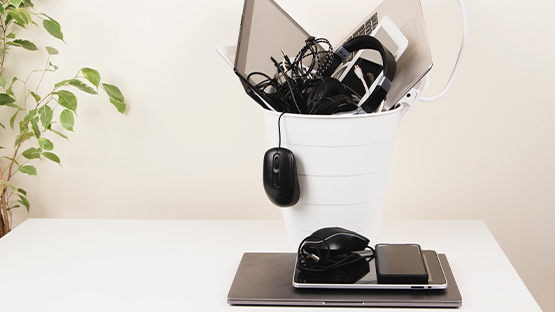How to save heat energy - practical tips
Ecology

31 July 2023
How do you save on heating? Everyone is trying not only to save money on bills, but also to contribute as little as possible to pollution. The heat used indoors often generates high charges, but there are ways to avoid this. We outline how to save heat energy at home!
How to save heat energy at home - top tips
Saving heat energy has always been a topic eagerly discussed by everyone. You don't have to be a lover of ecology or a champion of saving money to ask yourself "how do I save heat energy at home?". For some, this is a redundant question, but many people can see the negative impact that excessive use of heat energy has on bills and the environment.
One of the most important tips on how to save heat would certainly be to keep an eye on the temperature outside. This may seem simple and logical, yet not everyone thinks about it. Adjusting the temperature according to the weather outside will allow you to use heat energy optimally.
The heat energy in the flat can be controlled by a thermostat. Investing in such a device will be a good idea - it will allow us to precisely adjust the temperature in the room to that outside or to our own needs. This is an especially good solution when living in areas where temperature fluctuations are high even during the day.
Another thing that may seem basic and easy to come up with is replacing the seals on windows and doors. The elastics responsible for sealing the windows wear out and deteriorate after a while due to the fact that they are exposed to changing weather conditions. It is therefore a good idea to replace them even every year or two. Then you can be sure that the gaps in the window are not a place where heat escapes.
When going on holiday, it makes no sense to turn off the valves on every radiator. Returning to a house where it hasn't heated for a fortnight will be unpleasant. Instead, leave the radiators gently turned off so that the temperature stays or possibly drops slightly. This will make it more comfortable to return to your own home and use less energy later.
What influences heat energy savings in the home?
What contributes to saving heat in the home? Ourselves and the rest of the household, who are happy to contribute to the environment and lower bills.
Using gas in the kitchen and a lot of hot water, e.g. when washing up, makes this room a higher temperature than others. It will be beneficial for saving money to lower the temperature in the kitchen, which is higher in this room anyway when cooking. This will save on bills. It is also best to place a thermometer on the wall. This will show whether heating the room is needed.
Saving heat in a flat can also depend on how and when we air the rooms. Everyone likes a breath of fresh breeze and air that smells of rain. The heat energy in the flat will be wasted if the radiators are not turned down during ventilation. It is also a good idea to ventilate for a short time - a few minutes or so is enough. The best way to make sure that you have ventilated for a sufficient amount of time is simply to go into the room and see if you can feel that the air has changed. It's also no good just tilting the windows. Good ventilation is done with the window open all the way - the air circulation is better then. 
What should you pay attention to when saving heat energy in your home?
Saving heat in a flat can be difficult, especially if you live in a decades-old building with old windows and no thermal upgrading. It is worth paying attention to whether our efforts actually make sense. If, for example, the building administrator does not give permission for the windows to be replaced or postpones thermo-modernisation until a few years from now, taking steps to save energy can be difficult. In such a case, we may try, but our efforts will not yield satisfactory results. It is assumed that many buildings in Poland are still not insulated. This causes them to cool down much more quickly than others and creates the need for constant heating. This is less common in single-family houses, where the owners decide to insulate even at the construction stage.
It's also a good idea to make sure that no furniture obstructs the radiator - this will make it more difficult and take longer to heat one room than it could. This is particularly problematic if radiators have been installed in particularly awkward places, causing the rooms to be inconstant. If this is the case, it's a good idea to think about interior fittings that are adapted to the radiators.
How to effectively control heat consumption in the home?
The most effective solution for controlling heat consumption in the home is to install a heat meter, which will be a good predictor of the changes and faults needed, and will also indicate any parameters concerning heat consumption. The information on the heat meter can be compared with that of previous years - this will give a good insight into changes over time and allow you to think about new solutions.
Another option is the thermostat already mentioned above. It will help to adjust the appropriate temperature in each room, making it much easier to control expenditure and heat use.
Many people decide to replace their heating system with a newer one if the one they are using now is old. Before this happens, however, it's a good idea to familiarise yourself with the offers and types of systems, as not everyone will be cost-effective. The ideal type of heating system will not generate excess charges, and in many cases its price will pay for itself after just a few months. However, as we mentioned, the cost of installing a new system can be a major expense for some. In such a situation, it is a good idea to plan other ways of saving heating energy.
Every household has heating installations. The heating energy in the dwelling may be used in excess by defects created during operation. Therefore, it is a good idea to check each year to ensure that these do not disrupt the operation of the equipment, causing an increased need for heating. Simply do this before each heating season and you may find that replacing the system is not necessary at all.
Czytaj również






